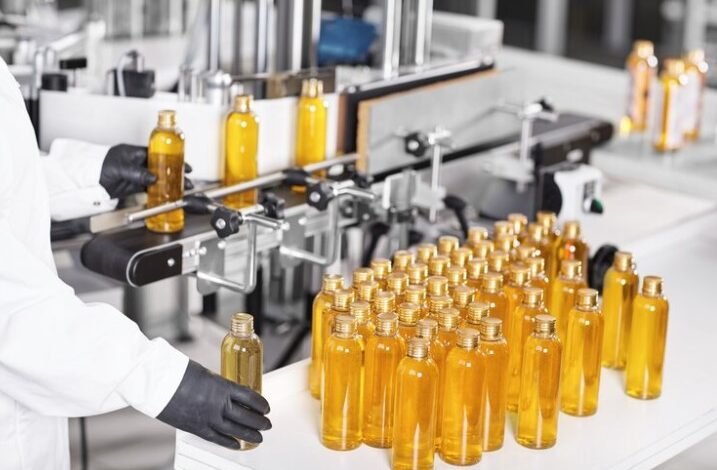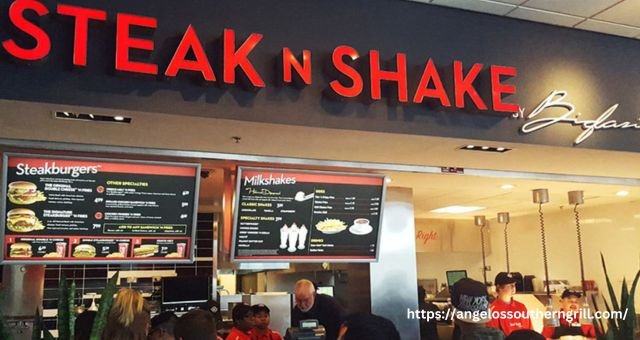Streamlining Production: Advanced Labeling Systems for Bottles

In the world of manufacturing, efficiency is key. As companies strive to meet increasing demands while maintaining high-quality standards, optimizing production processes becomes essential. In industries such as pharmaceuticals, food and beverage, and cosmetics, where products are often packaged in bottles, advanced labeling systems play a crucial role in streamlining production. These systems not only improve efficiency but also enhance accuracy, consistency, and compliance with regulatory requirements. Drawing from insights provided by a study featured in the journal “Advanced Materials Research”, which focused on improving maintenance plans for automatic labeling systems in a carbonated soft drink industry case study, it’s evident that strategic enhancements in labeling systems positively impact production efficiency and product quality. In this article, we’ll explore the latest advancements in labeling technology for bottles and how they can benefit manufacturers.
The Importance of Efficient Labeling Systems
Labels serve multiple purposes beyond simply identifying products. They convey important information such as ingredients, dosage instructions, expiration dates, and regulatory compliance statements. In industries where safety and accuracy are paramount, such as pharmaceuticals and food and beverage, ensuring that labels are applied correctly and securely is crucial. Manual labeling processes are not only time-consuming but also prone to errors, leading to production delays, wastage, and compliance issues. Advanced labeling systems offer a solution to these challenges by automating the labeling process and improving overall efficiency.
Types of Advanced Labeling Systems
Advanced labeling systems come in various forms, each tailored to meet specific production needs and requirements. Here are some of the most commonly used systems:
- Pressure-Sensitive Labeling Systems: Pressure-sensitive labeling systems apply labels to bottles using adhesive-backed labels. These systems are versatile, capable of handling various label shapes, sizes, and materials, and can accommodate high-speed production lines.
- Wrap-around Labeling Systems: Wrap-around labeling systems are designed to apply labels to cylindrical or round bottles by wrapping the label around the container. They ensure precise label placement and are ideal for products with curved surfaces.
- Print and Apply Labeling Systems: Print and apply labeling systems combine printing and labeling functions into a single process. These systems can print variable data such as barcodes, serial numbers, and expiration dates on-demand and apply them directly to bottles, eliminating the need for pre-printed labels.
- Sleeve Labeling Systems: Sleeve labeling systems apply heat-shrinkable sleeves to bottles, providing 360-degree coverage. These labels offer excellent durability and tamper-evident protection, making them ideal for products requiring high levels of security and protection.
Benefits of Advanced Labeling Systems
Implementing advanced labeling systems offers several benefits for manufacturers:
- Improved Efficiency: By automating the labeling process, advanced systems can significantly increase production speed and throughput, allowing manufacturers to meet tight deadlines and customer demands.
- Enhanced Accuracy and Consistency: Advanced labeling systems ensure precise label placement and alignment, reducing the risk of mislabeling and product errors. This enhances product quality and consistency, improving customer satisfaction and brand reputation. Automated labeling systems enhance production by streamlining processes and minimizing human intervention, leading to increased efficiency and productivity.
- Compliance with Regulatory Requirements: Many industries are subject to strict labeling regulations to ensure consumer safety and product integrity. Advanced labeling systems can help manufacturers comply with these requirements by accurately printing and applying required information such as ingredients, warnings, and expiration dates.
- Cost Savings: While the initial investment in advanced labeling systems may be significant, the long-term cost savings can be substantial. By reducing labor costs, minimizing wastage, and improving efficiency, manufacturers can achieve a rapid return on investment.
Conclusion
Advanced labeling systems offer manufacturers a powerful tool for streamlining production, improving efficiency, and ensuring product quality and compliance. By automating the labeling process and incorporating advanced technologies such as print and apply, wrap-around, and sleeve labeling systems, manufacturers can achieve significant cost savings, reduce errors, and enhance customer satisfaction. As consumer demands continue to evolve and regulatory requirements become increasingly stringent, investing in advanced labeling systems becomes not just a competitive advantage but a necessity for success in today’s manufacturing landscape.














